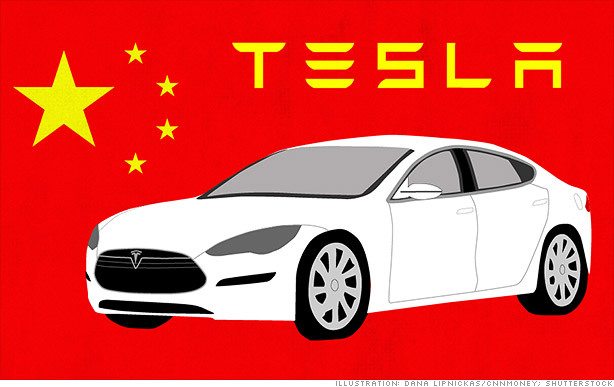Back in June Tesla said that it was in talks with the Chinese government about building a factory in the PRC. That discussion has finally fructified, at least in part. Tesla Motors will proceed with the building of a car manufacturing plant in Shanghai, according to a Wall Street Journal report Sunday. However, it is unlikely that Tesla will opt for a local partner, which means they may not get any breaks on the 25% tax that their Chinese buyers currently pay for Tesla EVs.
While specifics of the new Tesla plant in China are still fuzzy, it is known that China has been discussing a plan to let non-Chinese carmakers build their facilities in the country’s free-trade zones. It’s a big shift from China’s policy about requiring a local partner to team up with, but China is now moving into a more mature phase of growth compared to its economy’s earlier rapid expansion. This is the point where China needs to think about compromises with foreign companies in order to boost and stabilize local economies around the nation.
For Tesla, although its customers won’t benefit from any tax gains unless the company partners with a local entity, the cars will still be much cheaper to make locally rather than having to be shipped in from other plants around the world.
There was no word about battery manufacturing, but it is very unlikely that Tesla will release that particular technology into the country, considering China’s lax stand on intellectual property belonging to outside companies, as well as its hankering for foreign technology to be shared with local players.
But China is already a major player in the EV battery arena, and is expected to grow its global market share by 70% over the next few years in what is potentially going to be a $240 billion industry. And it’s not unlikely that Chinese scientists have already taken apart a bunch of Tesla batteries to see what gives them superior range.
Interestingly, Apple is now working with China’s largest automotive battery maker CATL (Contemporary Amperex Technology Ltd.) in the area of EV battery production, according to China’s Yicai Global. CATL plans to hit 50 GWh production capacity over the next three years, which is exactly the same capacity that the Tesla Gigafactory is expected to reach in 2018. Total capacity for the Gigafactory is 150 GWh.
Apple’s plans to enter the EV market has been widely known for a while now. Although Apple claims that it is no longer planning to build an EV on its own, the story might well go the iPhone way. Apple doesn’t make iPhones either: it designs them, contract-manufactures them and sells them under its own branding. It could do the same with EVs using Chinese partners.
Later this year, Tesla will solidify its plans for the Chinese factory, and by then there could be some additional news about the Apple-CATL partnership as well.
Thanks for visiting. Please support 1redDrop on social media: Facebook | Twitter



